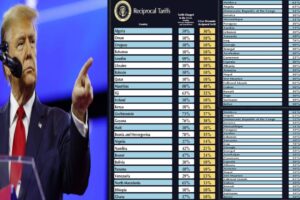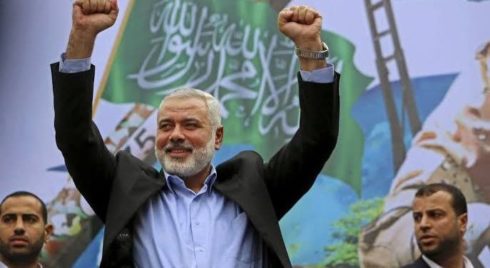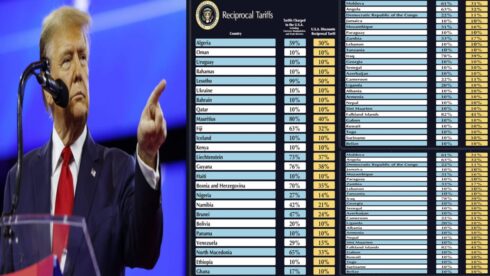Ismail Haniyeh, a prominent Hamas political leader, was killed in an airstrike in Tehran at around 2:00 local time. This assassination has been attributed to Israel by Hamas, although Israel has not yet issued an official response. The attack occurred while Ismail Haniyeh was in Iran to attend the inauguration of the new Iranian President, Masoud Pezeshkian. The timing of this strike is particularly significant, coming just hours after Israel reported killing a senior Hezbollah commander in Beirut.
These twin attacks on two senior Iran-backed militant leaders within 24 hours have escalated tensions in the region. The targeted killing of Haniyeh, who was a central figure in ceasefire negotiations between Hamas and Israel, casts a shadow over the already fragile peace process. The absence of such a pivotal figure in these talks raises concerns about the future of negotiations and the potential for further conflict.
Regional and International Reactions
The assassination of Haniyeh has sparked widespread condemnation from various countries in the Middle East and beyond. Jordan condemned the killing “in the strongest terms,” warning that it would lead to “more tension and chaos in the region.” Similarly, Lebanon’s Prime Minister Najib Mikati condemned the attack during an urgent cabinet meeting, emphasizing the potential for a serious escalation in regional hostilities.
China also voiced its opposition, with the foreign ministry’s spokesman, Lin Jian, expressing “deep concern” over the assassination and its implications for regional stability. He called for a “comprehensive and permanent ceasefire” in Gaza, reflecting a broader international desire for de-escalation. These reactions underscore the widespread unease about the potential fallout from Haniyeh’s killing and the broader implications for Middle Eastern geopolitics.
Mossad’s Reach and Future Implications
The killing of Ismail Haniyeh in Tehran is a significant blow to Hamas, both in terms of leadership and morale. Following the unprecedented Hamas attack on Israel on October 7, Israeli Prime Minister Benjamin Netanyahu had publicly instructed Mossad to target Hamas leaders wherever they are. The fact that Haniyeh was killed in Iran, a key ally and supporter of Hamas, highlights the reach and determination of Israeli intelligence operations.
This assassination, along with the recent targeting of Hamas’s military chief Mohammed Deif, represents a major operational setback for the group. The elimination of top political and military leaders is a strategic victory for Israel but also raises the stakes for future engagements. It sends a clear message that Israel is willing to take bold actions, even within the territories of its most formidable adversaries, potentially leading to increased volatility and unpredictability in the region. ::## Iranian President Vows Retaliation Against Israel
Iranian President Masoud Pezeshkian has issued a stern warning to Israel following the assassination of Hamas political leader Ismail Haniyeh. In a statement quoted by AFP news agency, Pezeshkian vowed to make Israel “regret” the “cowardly” killing of Ismail Haniyeh, pledging that Iran would “defend its territorial integrity, honour, pride, and dignity.” Pezeshkian described Haniyeh as a “brave leader,” underscoring the significance of his visit to Tehran, where he was attending Pezeshkian’s presidential inauguration ceremony.
Iran’s supreme leader, Ayatollah Ali Khamenei, also condemned the assassination, stating that avenging Haniyeh’s death is “Tehran’s duty.” Khamenei emphasized that Israel, which has not claimed responsibility for the attack, had provided the grounds for “harsh punishment.” The strong rhetoric from both Iranian leaders signals a potential escalation in tensions between Iran and Israel.
Qatar Condemns Ismail Haniyeh Killing as ‘Heinous Crime’
The international community has started to react to the killing of Ismail Haniyeh, with Qatar’s foreign ministry leading the condemnation. In a statement, the ministry described the assassination as a “heinous crime, a dangerous escalation, and a flagrant violation of international and humanitarian law.” Qatar warned that such actions by Israel, including the continuous targeting of civilians, could lead to regional chaos and undermine the chances of peace.
The statement from Qatar reflects broader concerns in the region about the implications of Haniyeh’s death. While Israel has yet to respond to the incident, the diplomatic fallout continues to grow, with many fearing that the assassination could spark further violence and destabilize an already volatile area.
Early Reports Suggest Hamas Leader Killed by Rocket
Initial reports suggest that Ismail Haniyeh and his bodyguard were killed by a rocket attack on the house where he was staying. This attack comes in the wake of Israel’s vow to hunt down and punish Hamas leaders following the brutal attacks on October 7, which resulted in the deaths of approximately 1,200 Israelis and foreigners. Although Israel typically does not comment on its operations abroad, this incident may follow the pattern of a previous Israeli operation targeting Iranian air defenses around its Natanz nuclear facility.
Iranian Foreign Ministry spokesperson Nasser Kanani expressed condolences over Haniyeh’s death, describing him as a “proud fighter” and asserting that his blood “will never be wasted.” Kanani stated that Iran is investigating the incident but emphasized that the death would “strengthen the deep and unbreakable bond” between Iran and the Palestinians. As investigations continue, the international community watches closely for further developments and potential retaliatory actions.
Who is Ismail Haniyeh?
Born in a Gaza refugee camp in 1963, Ismail Haniyeh has been a prominent figure within Hamas since its inception. Despite several imprisonments by Israel and a temporary expulsion to south Lebanon, Haniyeh continued to play a significant role in Palestinian politics. In 2003, he survived an assassination attempt alongside Hamas’s founder, a testament to his enduring influence and resilience.
In 2006, following Hamas’s electoral victory, Haniyeh assumed the role of Palestinian prime minister, albeit briefly due to escalating tensions with Fatah, the primary rival faction. Despite these challenges, Haniyeh was recognized for his pragmatism and ability to maintain diplomatic ties with other Palestinian groups, fostering a reputation as a negotiator and consensus-builder.
In 2017, Haniyeh was elected as the head of Hamas’s political bureau, solidifying his leadership within the organization. In recent years, he resided in exile, primarily moving between Turkey and Qatar, where he continued to advocate for Palestinian interests and played a pivotal role in ceasefire negotiations amid ongoing conflict in Gaza.














